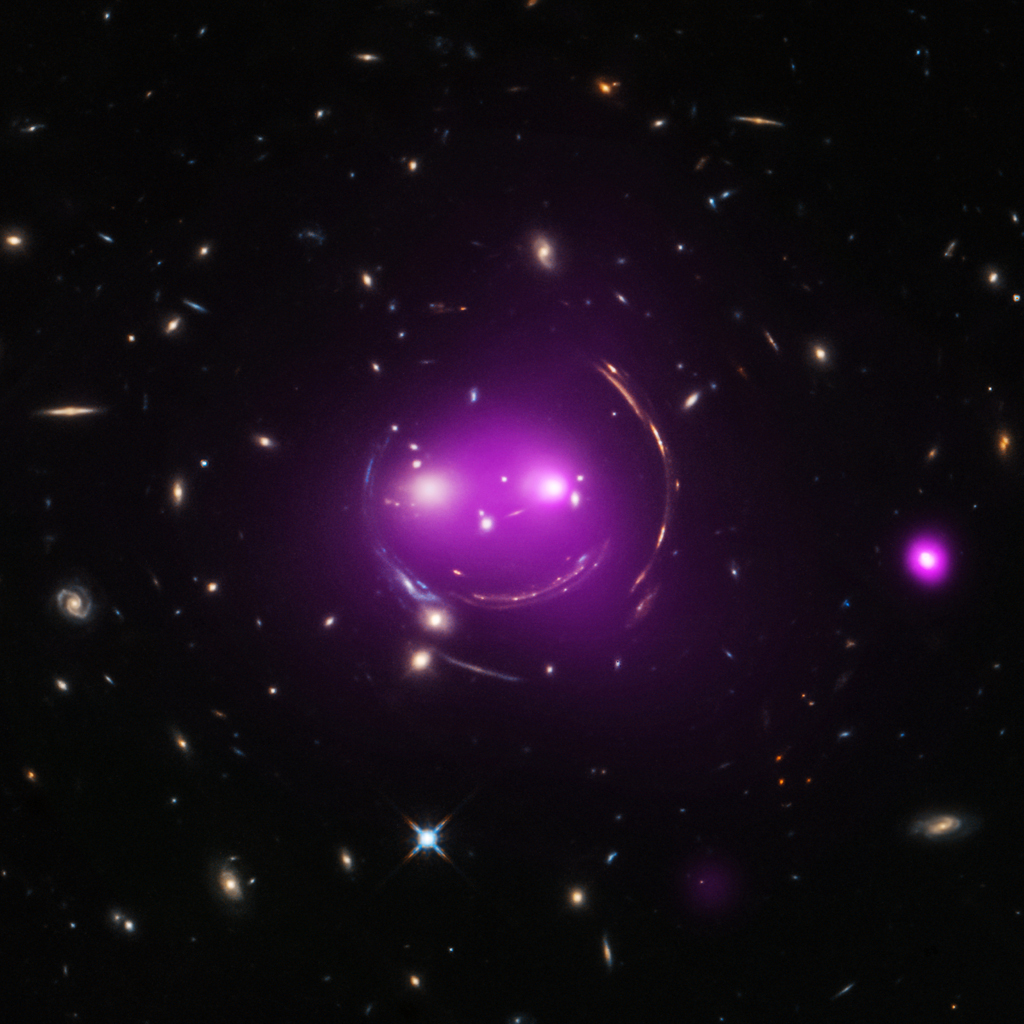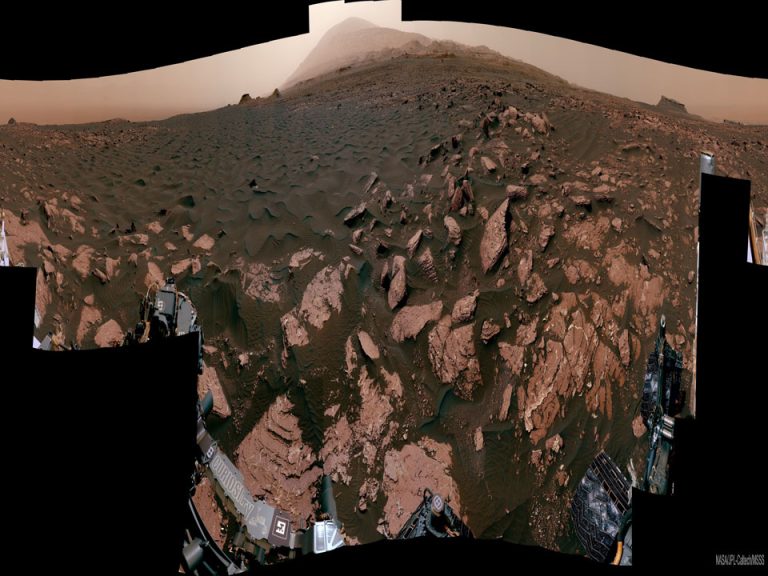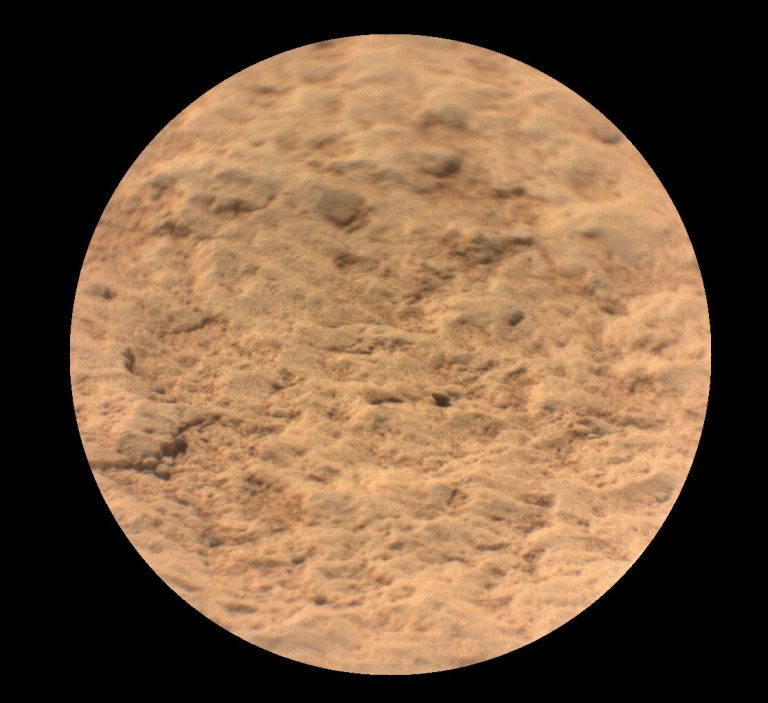2019 October 26
Gravity’s Grin
Image Credit: X-ray – NASA / CXC / J. Irwin et al. ; Optical – NASA/STScI
Explanation: Albert Einstein’s general theory of relativity, published over 100 years ago, predicted the phenomenon of gravitational lensing. And that’s what gives these distant galaxies such a whimsical appearance, seen through the looking glass of X-ray and optical image data from the Chandra and Hubble space telescopes. Nicknamed the Cheshire Cat galaxy group, the group’s two large elliptical galaxies are suggestively framed by arcs. The arcs are optical images of distant background galaxies lensed by the foreground group’s total distribution of gravitational mass. Of course, that gravitational mass is dominated by dark matter. The two large elliptical “eye” galaxies represent the brightest members of their own galaxy groups which are merging. Their relative collisional speed of nearly 1,350 kilometers/second heats gas to millions of degrees producing the X-ray glow shown in purple hues. Curiouser about galaxy group mergers? The Cheshire Cat group grins in the constellation Ursa Major, some 4.6 billion light-years away.
重力的笑容
影像提供: X-ray – NASA / CXC / J. Irwin et al. ; Optical – NASA/STScI
说明: 在100多年前的这个月,爱因斯坦所发表广义相对论预言了引力透镜现象。而正也是这种现象,把这些遥远星系弄成了这付怪诞的模样,更为这张结合钱卓拉天文卫星的X射线和哈伯望远镜的可见光数据之影像,带来了爱丽斯魔镜之旅的风貌。昵称为柴郡猫星系群的这两个大型椭圆星系,周围环绕着容易让人引发联想的光弧。这些可见光弧,是遥远背景星系受到星系群包括暗物质在内的所有质量之引力聚焦,所形成的蜃影。实际上,构成“眼睛”的二个大型椭圆星系,是合并中的二个星系群之最明亮成员。因为它们碰撞的相对速率高达每秒1,350公里,是以气体被加热到数百万度,而辐射出被渲染成紫色的X射线辉光。对合并星群的好奇心增加了吗?柴郡猫星系群在大熊座内,距离约46亿光年的远处露齿诡笑。 (Cheshire Cat galaxy group 柴郡猫星系群)







